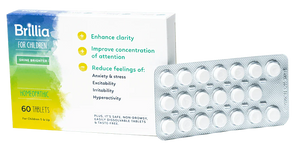Studies show that more than 50 percent of deaths worldwide are attributable to inflammation-related diseases such as ischemic heart disease, stroke, cancer, diabetes, and more.1 While many of us know that eating well and exercising regularly can lower our risk of developing one of these inflammation-related diseases, we should also be aware of the role that stress plays in spreading inflammation throughout the body. After all, the American Institute of Stress reports that 33 percent of people are struggling from “extreme stress,” with 77 percent reporting stress-related physical ailments and 73 percent reporting that stress impacts their mental health.2 Find out how stress affects inflammation in the body and what you can do to feel better.
Stress & Inflammation Link
Do stress hormones cause inflammation? This is what a research team led by Carnegie Mellon University's Sheldon Cohen set out to explore in a 2012 study.3 What they found was that prolonged stress alters the effectiveness of the stress hormone cortisol to regulate the inflammatory response because it decreases tissue sensitivity to the hormone. More specifically, immune cells become insensitive to cortisol's regulatory effect, leading to an out-of-control inflammatory response thought to contribute to the development and progression of many diseases. This is why people suffering from psychological stress are more susceptible to developing common colds and many other ailments.
Signs of Inflammation
Inflammation is characterized by five cardinal signs: redness, swelling, heat, pain, and loss of function.4 However, chronic inflammation may lead to a variety of symptoms that affect your overall health. These include:
- Body aches
- Constant fatigue and insomnia
- Mood disorders like depression and anxiety
- Frequent infections
- Weight gain
- Gastrointestinal issues like constipation, diarrhea, and acid reflux
Your GI System & Stress
Functional gastrointestinal disorders affect up to 70 percent of people, women more often than men.5 One of the main culprits? Stress. The relationship between psychological stress and GI stress is complicated and bidirectional; stress can trigger and exacerbate GI issues, and vice versa. It all boils down to our body’s “fight or flight” response. When a person is stressed to the point of triggering the fight or flight response, digestion slows so that the body can reroute its energy to facing a perceived threat. When this happens regularly in terms of chronic stress, the digestive process may be chronically disrupted, causing abdominal pain and other symptoms of functional GI disorders.
Good vs. Bad Stress
Despite the link between stress and inflammation, our stress hormones exist for good reason. The fight or flight response was crucial for our ancestors who had to flee constant predators and it is crucial for us in emergencies and times of unusual distress. The hormone cortisol, when functioning properly, regulates inflammation so it doesn’t run rampant in the body. But when we are chronically stressed and require too much cortisol, our bodies suffer. The interplay between stress, inflammation, and emotion is so strong that it is important we find ways to control our stress levels before stress controls us.
Key Takeaways
There are a number of lifestyle choices that have been proven to reduce stress, from exercising regularly to practicing mindfulness like conscious breathing to meditation. Ensuring you’re getting enough sleep, eating well, and reducing your screen time can also make a dramatic impact in managing your stress levels. While it may be tempting to reach for an anti-anxiety medication to feel better, there are also non-prescription medications available like Brillia for Adults, which is designed to help reduce feelings of anxiety, stress, restlessness and irritability without harsh chemicals or harmful side effects. Brillia works best in tandem with the healthier lifestyle choices mentioned above, offering a multifaceted approach that targets not just the symptoms of your stress, but the root causes as well. Keep in mind that if you are already taking another medication, you can add Brillia to your regimen without worry because there are absolutely no contraindications. Find out more about how Brillia works.







